Traveling in Trump’s Shadow
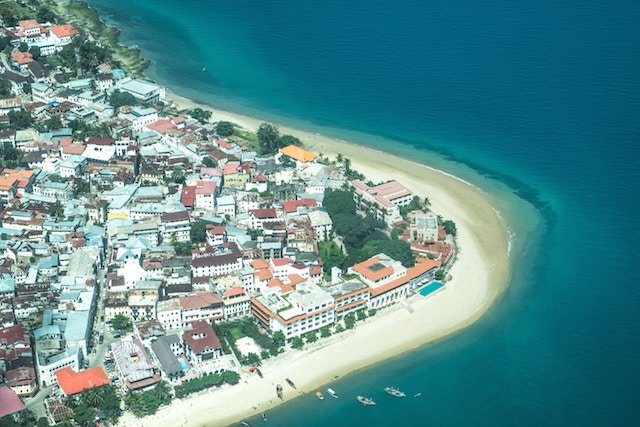
When I tell local Zanzibaris where I’m from, I can usually predict their responses.
“Obamaland!”
“How’s Barrack?”
“I’ve always wanted to visit America.”
In recent weeks, however, those responses have changed dramatically.
“So, who are you voting for?”
“Do you think there will be a civil war?”
“If I go to America, will I be shot? I’m black, you know.”
Before I came to Zanzibar, I knew that my homeland’s politics would be a central topic of conversation. I knew that people wouldn’t be shy to ask me my opinion. I knew that some of them would assume my opinion without asking me, that they might be offended, that November could possibly turn into a dangerous month. But knowing did not prepare me. I could never have predicted the extent to which American politics has influenced my experience in a country 8,000 miles away.
My explanations, like those of the other tourists here, determine what people in Zanzibar understand about the situation in the US. They define what America is, what Americans think.
Zanzibar, an island off the coast of Tanzania with a long history of Omani Arab influence, is 95% Muslim. The first time I came to Zanzibar, I did so with a keen awareness of how I, as a white, Christian, American woman, would relate to a majority Muslim community. I participated in a six-week program called America’s Unofficial Ambassadors, an American non-profit dedicated to breaking down Islamophobia by sending American students to work as volunteers and teachers in the Muslim world.
I applied on the recommendation of my college roommate. I had no previous experience traveling anywhere outside of Asia and Europe. I did not study Arabic or Swahili in school. I couldn’t even pretend to have a passing knowledge of what Islam, the second largest religion in the world, really was. In other words, I was a fairly stereotypical, ignorant American tourist.
Now, a year later, I would like to say that something has changed. Of course, as an Unofficial Ambassador, I learned about Islam, about Zanzibar, and even some Swahili. I learned just how difficult it is to define my culture, my beliefs, and my values to people who are unfamiliar with them. However, in many ways, I am still a tourist. That hasn’t changed.
But the world has.
I chose to come back to Zanzibar during the most turbulent presidential election in recent memory. It is an election characterized by a worldwide fear of radical Islam, and all the assumptions and generalizations that come from such widespread panic. It is also an election that many conflate with a battle of the genders. As a liberal, young, American woman in a patriarchal, majority Muslim society, I tend to find myself embroiled in some complicated conversations.
I’ve argued with Trump supporters before. In fact, it’s become a pastime with old high school acquaintances on Facebook. But these discussions in Zanzibar are different. Perhaps the most difficult conversations are not the ones where I argue my opinion, but the ones where I have to explain the situation itself.
The answer is expected of me, but I don’t have it.
On my third day in the country, a teacher at a school in Zanzibar asked me how Trump became so rich. I explained his string of business ventures. He exclaimed that this was the American Dream. I grimaced, then explained his string of bankruptcies. With a smirk, indicating he didn’t believe me, he asked why so many people support Trump. I’ve been trying to figure out this question since March. He answered it for me.
“Because he is a strong man, right?”
“No.”
“You support … what’s her name? Hillary Clinton? Why?”
“Because I believe she would be a better president than Trump.”
“But she is a woman. She can’t defeat ISIS. You need a man.”
Resisting the urge to throw my head back and scream, I took a moment to explain Trump’s view about Muslims entering the United States. He nodded for a moment, silent, his brow furrowed.
“But why?”
Why? How can I explain ignorance? How can I explain fear? How can I have this conversation and not leave this man believing that Americans hate Muslims and vice versa? I realize, as a massive weight clamps itself firmly to my shoulders, that my answers to these questions are not simply my opinions drifting in the larger political thunderstorm. My comment is not one in a never-ending Facebook timeline.
My explanations, like those of the other tourists here, determine what people in Zanzibar understand about the situation in the US. They define what America is, what Americans think.
They are also drowned in a cacophony of news reports about unarmed black men shot by police officers, American Muslims beat up outside mosques, women raped at universities, all of which prompt that one crucial, impossible question: why? The answer is expected of me, but I don’t have it. All I have to offer is an unsatisfactory piece of honesty.
“I don’t know.”
Traveling in Trump’s Shadow Photo credit via unsplash.

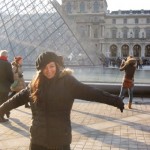
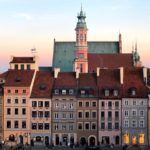
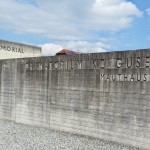
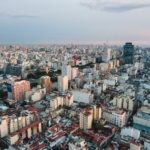
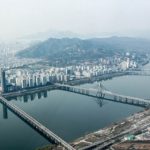
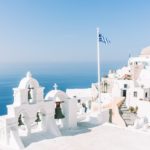
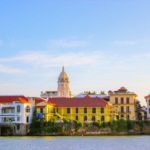
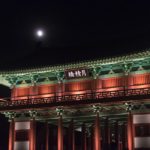
Great article Katrina! I’m not American, but I do struggle to explain to people when I travel in Asia (especially India and Nepal) that the Western world is not necessarily the dream that they think it is. So many people dream of being able to get a job in the West, without realising all the problems they would really face if they went there.